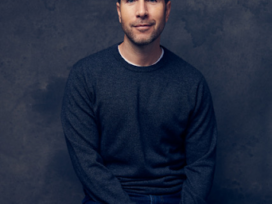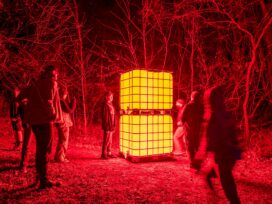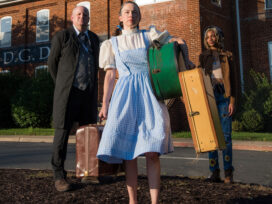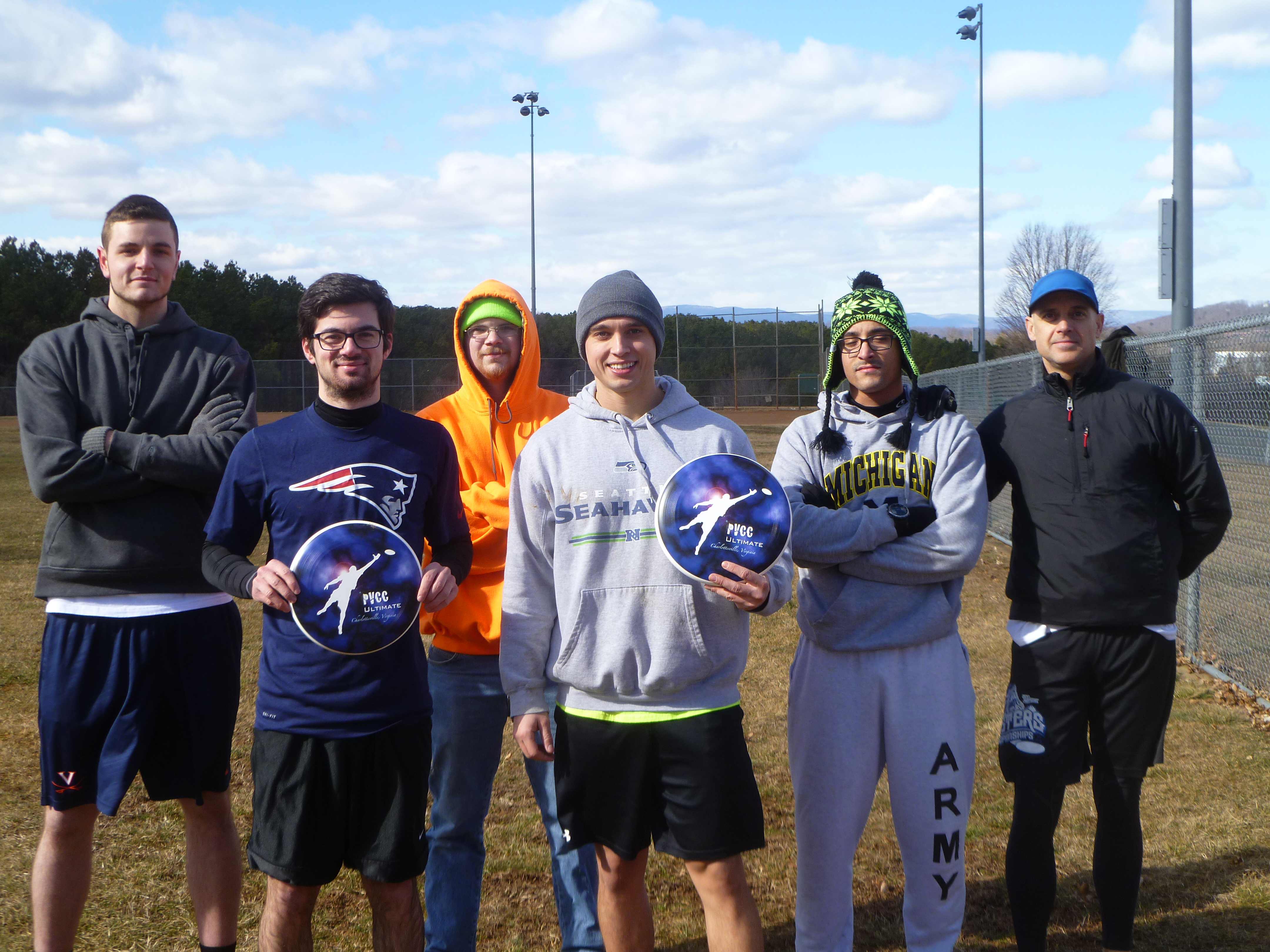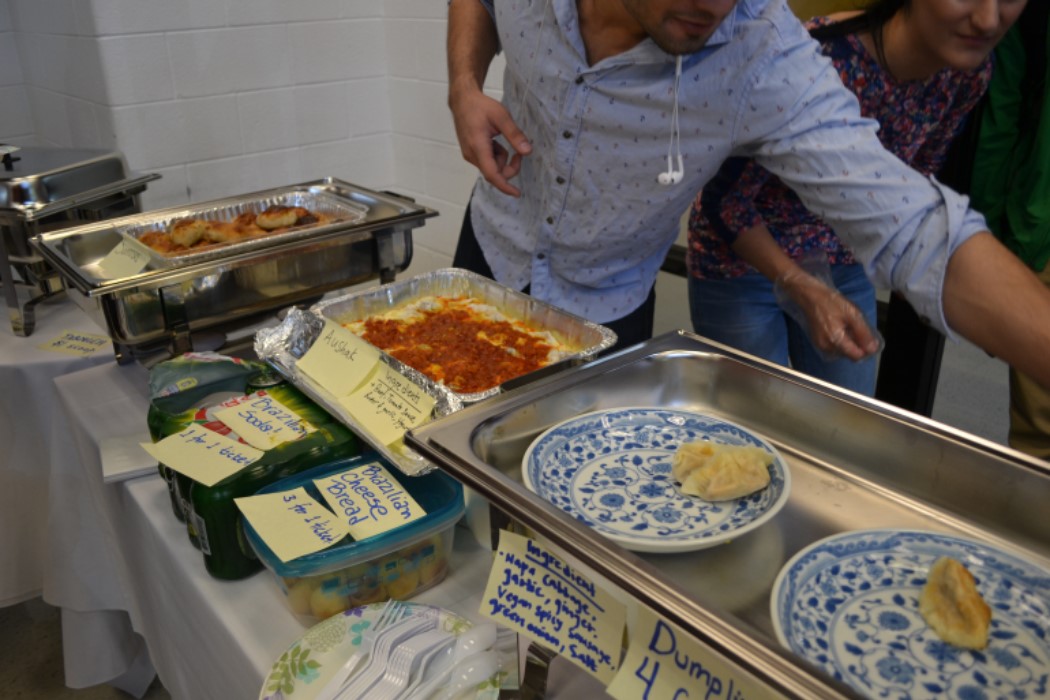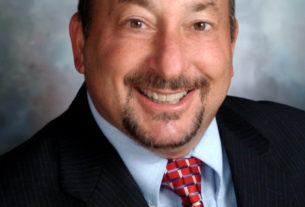
PVCC Holds Faculty Teach-in About Rallies in Charlottesville
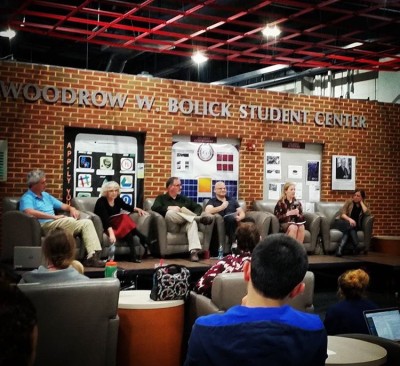
Skye Scott, assistant editor
On Monday, Sept. 11, PVCC held a faculty run teach-in to address student concerns on the rallies that recently occurred in Charlottesville. The teach-in explored the history of the confederate statues, the sociological aspect of hate groups, the psychological reasoning around racism, and the political aspects of the rallies.
As students, faculty, and staff from PVCC gathered around the speakers, a solemn hush fell on the school. Even students and faculty that passed through the hallway near the event remained quiet and respectful. The whole school held an atmosphere of intensity and seriousness during the event.
President Frank Friedman opened the event by naming this the Summer of Hate, as an opposite to the Summer of Love back in the 60’s. He talked about how these rallies started because of controversial monuments in Charlottesville, but became a reason for hate groups to descend onto our city and preach their message. He described how frightening and troubling these rallies were for many people in Charlottesville, especially since they eventually led to violence and death. He then compared this to the diverse and inclusive environment PVCC aspires to provide its students, faculty, and staff.
Jennifer Tomas, an assistant professor of history at PVCC, spoke after President Friedman. She started by talking about the difference between the way history is taught in the north and the south. She said “the past is very present,” and the conflict over monuments highlights the control over history within cultural wars. She went on to talk about where and how Charlottesville’s Robert E. Lee statue was commissioned in 1917 and built by confederate members to help portray the Civil War as “the south standing up towards north aggression.” Tomas included a call to action, saying that not responding is no longer an option.
Melanie Bailey, an associate professor of history at PVCC, talked about the many instances in history where a dominant group has blamed a minority for something they do not have. She connected this to what happened in Charlottesville.
Assistant Professor of Sociology Todd Platts talked about the sociological aspects behind hate groups. He started his talk with this quote, from Nelson Mandela, “No one is born hating another person because of the color of his skin, or his background, or his religion. People must learn to hate, and if they can learn to hate, they can be taught to love, for love comes more naturally to the human heart than its opposite.”
Platts then said that it was rare for people to join hate groups because they were born into it or as an outlet for racial tendencies. Instead, he said most racism is learned after joining the hate group, not before. One big reason for this is that it is hard for children to be socialized into racism, since their parents would have to hold extremist ideologies and keep them extremely sequestered from the outside world. Because of the way our society is now, children are not sequestered enough for this to happen. Also, Platts said hate groups are normally not large enough to be multigenerational and sometimes parents find their racism burdensome and do not want their children to have the same burden.
Michael Rahilly, an assistant professor of psychology at PVCC, spoke about the roots of racism. Rahilly makes the claim that through evolution we evolved to cooperate within the group we identify with, and at the same time we evolved to make judgements about people outside of our specific group. In this way people create a sense of self within their own groups, and view other groups as bad. He said this applies to race, sexuality, and gender.
Assistant Professor of Political Science Connie Jorgensen spoke about the political aspect of the rallies in Charlottesville. She said, “Just because you find an idea offensive, that doesn’t mean you can ban it.” She also addressed the question of whether or not people were disobeying the laws by partaking in hate speech. She asked the questions, “What is hate speech? Who decided what is or isn’t hate speech?” Jorgensen said that it gets tricky because people consider different things hate speech. She also talked about the subject of weapon presence at the rallies. She stated Virginia is an open carry state, and while some cities are able to put restrictions on assault weapons, Charlottesville is not one of them. She also said the governor is prohibited from putting restrictions on firearms, even in a state of emergency.
Jorgensen said that because of the rallies in Charlottesville, the American Civil Liberties Union (ACLU) will no longer defend free speech if firearms are involved. She ended by saying committing violence because of hate speech will not be justifiable in a court of law.
The last speaker was Justin Wert, an associate professor of English at PVCC. He said, “Hategroups and the racist individuals involved should be punished according to Virginia State laws for the violence they initiated and that we need to prevent it from ever happening again.”
He also explained how a recent report from the FBI and Department of Homeland Security says the people associated with white supremacy groups, like the KKK and the Nazis, are domestic terrorists.
Wert went on to say that, in his opinion, the Aug. 12 rally should never have happened, considering the permittee for the rally was arrested during the May rally for disorderly conduct. He said, “To permit that person a second time for the Aug. 12th rally was a lapse in common sense by the city council and the mayor, not a valid protection of free speech.” He concluded by answering a student question about whether the rallies were people from our community. He said, “A few were from Virginia but most were from other places, and that all of them were ‘outsiders’ who do not represent our community and what we believe.”


